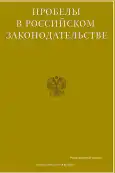Current Problems of Countering the Development of Extremist and Terrorism Behavior Under the Conditions of Foreign Sanctions
- Authors: Gelyakhova L.A.1
-
Affiliations:
- Krasnodar University of the Ministry of Internal Affairs of Russia
- Issue: Vol 16, No 4 (2023)
- Pages: 157-161
- Section: General theoretical, criminal-legal and other problems of Countering extremism and terrorism. Problems of preventing extremism and terrorism
- URL: https://journals.eco-vector.com/2072-3164/article/view/568410
- EDN: https://elibrary.ru/ONLLUJ
- ID: 568410
Cite item
Abstract
The sanctions imposed by foreign states on the territory of the Russian Federation are mainly of an economic nature. However, in modern realities, their multidimensional influence on the development of Russian society is observed. Separate economic crisis situations, a decrease in the level of well-being of the population, a shortage of specific goods and services - these circumstances significantly contribute to the growth of social tension in society, which is one of the main factors in activating the spread of extremist and terrorist ideology. Given the fact that in recent years the number of extremist crimes has significantly increased and quite a lot of terrorist acts have been prevented, questions arise about the effectiveness of modern mechanisms for combating extremism and terrorism in the Russian Federation. The purpose of the presented study is to analyze the existing mechanisms for countering the development of extremist and terrorist behavior and evaluate their effectiveness in the context of the sanctions policy pursued by foreign states. The author comes to the conclusion that in modern conditions, preventive and preventive activities in the framework of the fight against the above-mentioned illegal phenomena seem to be a priority. At the same time, it should be focused not only on the application of special law enforcement measures, but also on the resolution of existing socio-economic problems. Attention is focused on the existing problems of combating the development of extremist and terrorist behavior in the context of foreign sanctions (intensification of anti-Russian information impact, the dynamics of the transformation of the ideology of extremism and terrorism, a high degree of youth involvement in extremist and terrorist activities). The need for their prompt resolution is noted, which will significantly increase the effectiveness of the fight against the development of extremism and terrorism in Russian society.
Full Text
About the authors
Leyla A. Gelyakhova
Krasnodar University of the Ministry of Internal Affairs of Russia
Author for correspondence.
Email: Lel4993@mail.ru
Cand.Sci.(Law), Police Major, Head of the Department of Law Enforcement Organization North Caucasian Institute for Advanced Studies (branch)
Russian Federation, Nalchik, KBRReferences
- Registered extremist crimes // Prosecutor General's Office of the Russian Federation. Legal Statistics Portal. URL: http://crimestat.ru/offenses_chart (date of access: 05/10/2023).
- Manukyan A.R. Causes and forms of manifestation of the ideology of terrorism and extremism in adolescents and youth // Eurasian legal journal. 2022. No. 8 (171). pp. 410-411.
- Matskulyak I. D., Bogacheva G. N., Denisov B. A. Sanctions: political and economic perspective // Bulletin of the State University of Management. 2019. No. 5. pp. 34-39.
- Mustafaeva M.G., Mustafaev F.M., Ibragimov M.A. Terrorism and extremism: socio-legal analysis // Humanitarian and socio-economic sciences. 2022. No. 1 (122). pp. 11-16.
- Obukhova A.S., Piyaltsev A.I. Assessment of socio-economic changes in the economy in the context of external sanctions pressure on the Russian Federation // Regional and branch economy. 2022. №4. pp. 36-41.
- Tarasov V.Yu. Prevention of the spread of ideas of extremism and terrorism on the Internet // Victimology. 2023. V. 10. No. 1. P. 101-106.
- Chudina-Schmidt N.V. Extremism and terrorism: from thought to action // Eurasian Law Journal. 2022. No. 12 (175). pp. 427-428.
Supplementary files











